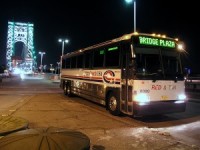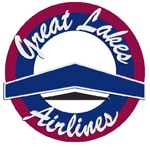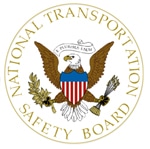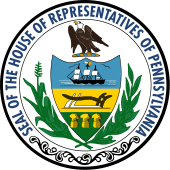
Author: matrixsuperadmin

The Missouri State Legislative Board is holding two more “Surviving Layoff” workshops as a result of the success of the last workshop held Jan. 29. “We are happy to announce that after the success and desire for this program to be made available to more members, we have been able to schedule two more furloughed rail worker workshops,” Missouri State Legislative Director Jason Hayden said. The workshop is open to all rail employees (furloughed and possibly going to be), and will be 1.5 – 2 hours long and includes a Q&A session. The next workshop will be held at the Sheet Metal Workers Local 2 Hall, 2902 Blue Ridge Blvd., Kansas City, MO 64129. This workshop is scheduled for Thursday, Feb. 25, at 1 p.m. The second workshop will be held at the Sheet Metal Workers Local 36 Hall, 2319 Chouteau Ave., Ste. 200, St. Louis, MO 63103 on Friday, Feb. 26, at 9 a.m. RSVP is not required, but is appreciated so that the board can have enough materials for all in attendance. Please contact Hayden if you plan to attend. He may be reached by emailing director@smartmoslb.org or by calling 573-634-3303. “We are still working to try and schedule a couple more workshops in different areas of the state,” Hayden added.


Today’s talks were the first since Presidential Emergency Board 249 selected the unions’ final offer as the “most reasonable”.
Under Section 9a of the Railway Labor Act, which is the law covering NJT commuter rail workers, the cooling off period expires 12:01 am on March 13. If no deal is reached by then, the unions can strike and/or NJT can lock its workers out. A strike or lockout can only be ended by the parties agreeing to a settlement, or Congress passing a law to end the dispute, which both sides believe would be highly unlikely.
The unions adopted the impartial recommendations of President Emergency Board 248 as our final offer. The recommendations call for a contract averaging 2.5 percent a year coupled with significant increases in employee health care contributions. NJT’s offer is for 0.6 percent net wage increases per year. The two Presidential Boards consisted of six experienced and expert arbitrators appointed by President Obama.
Coalition spokesmen said, “The last thing we want is a strike. We have gone five years without a contract. Our settlement proposal is modest and fair. All we are asking is what has been recommended by two expert neutral panels. Congress changed the Railway Labor Act to try to prevent commuter work stoppages by having a second PEB recommend the most reasonable offer, with penalties imposed on the side that doesn’t accept the recommendation. That has almost always led to a settlement. Yet now NJT refuses. We call upon NJT to end this dispute without disruption to the riding public.”
The Coalition includes every rail union on NJT, representing more than 4,000 commuter workers.
For further information, contact:
- Steve Burkert, General Chairperson SMART Transportation Division, (973) 527-7018
- Dave Decker, General Chairman BLET, (973) 497-2497
- Mick Barrett, General Chairman BMWE-D, (215) 245-2236
- Anthony Stevens, Division Chairman TCU/IAM, (908) 220-6736
Click here to view the official press release from the New Jersey Transit Rail Labor Coalition.

Members planning to attend one or both of the SMART Transportation Division regional meetings this summer can now make reservations for either city.
Click here to register online for the San Francisco regional meeting. Click here to register online for the Chicago regional meeting. Click here for the mail-in registration form.
Regional meeting registration is available online now by going to the Meetings page and clicking on the respective city. Hotel information can be accessed by visiting www.utu.org and clicking on the “Meetings” box on the bottom of the homepage. Links to the host hotels, city visitor bureaus, and online car-rental are also available.
Regional meetings will be held July 4-6 in San Francisco and July 25-27 in Chicago.
Each regional meeting will run for 2.5 days, ending early on the afternoon of the third day. The evening of the first day has been left unscheduled so you, your family and friends will be free to explore and enjoy the many offerings of the regional meeting cities.
All those attending the regional meetings must be registered in order to attend any planned social function. Children ages 11 and under who are pre-registered are complimentary.
The pre-registration fee for the 2016 regional meetings is $150 per member, spouse or child over age 11, the same fee charged the last eight years. Additional fees apply for the golf outings and family tours. You must make your own room reservations, and certain deadlines apply.
The $150 registration fee covers all workshop materials; a welcoming reception the night before the meeting; three lunches and one evening meal. Those wishing to attend only the workshops do not need to pay the registration fee. No one-day registrations are offered.
You may cancel your meeting registration 10 days prior to the first day of the meeting or the golf outing without penalty. Call the SMART Transportation Division at (216) 228-9400 or email ghenges@smart-union.org immediately regarding any changes or cancellations.
If you choose to register by mail, you must submit a completed registration form listing each attendee, regardless of age. Complete payment in U.S. funds must be received at the SMART Transportation Division, 24950 Country Club Blvd., Suite 340, North Olmsted, OH 44070-5333, by June 19 for the San Francisco meeting or by July 3 for the Chicago meeting, or the registrant will be charged an on-site registration fee of $200.

Amtrak passenger train #188 derailed, after entering a curve at 106 mph where the speed is restricted to 50 mph. Of the 250 passengers and eight Amtrak employees who were on board, eight passengers were killed and more than 200 others were transported to area hospitals.
Included in the docket are documents containing interview transcripts, letters, factual reports, photographs and other investigative material.
The public docket contains only factual information collected by NTSB investigators, and does not provide analysis, findings, recommendations or probable cause determinations. No conclusions about how or why an accident occurred should be drawn from the docket. The docket opening marks a transition in the investigative process where the majority of facts needed for the investigation have been gathered and the NTSB can move ahead with analysis of those facts. Opening the docket affords those with a need and desire for its contents the opportunity review what factual information has been gathered about the accident. Any analysis, findings, recommendations, or probable cause determinations related to the accident will be issued by the Board at a later date.
The docket material is available at: http://go.usa.gov/cEecP.
Additional material may be added to the docket as it becomes available.

Pokrowka was instrumental in getting this bill to fruition, having brought the two-person crew issue to the Pa. House of Representatives’ attention almost a year ago. Transportation Committee Chairman John Taylor (R – District 177), has asked Pokrowka to act as a presenter at the hearing.
H.B. 1797 reads as follows:
“(a) No train or light engine used in connection with the movement of freight may be operated unless it has a crew consisting of at least two individuals.
“(b) Any person who willfully violates this section shall be guilty of a summary offense and shall, upon conviction, be sentenced to pay the following:
- not less than $250 nor more than $1,000 for a first offense;
- not less than $1,000 nor more than $5,000 for a second offense committed within three years; and
- not less than $5,000 nor more than $10,000 for a third offense and subsequent offenses committed within three years of the first offense.
“(c) The provisions of subsection (a) do not apply to hostler service or utility employees.”
Pokrowka encourages all Pennsylvania members to attend this important public hearing in support of H.B. 1797.


